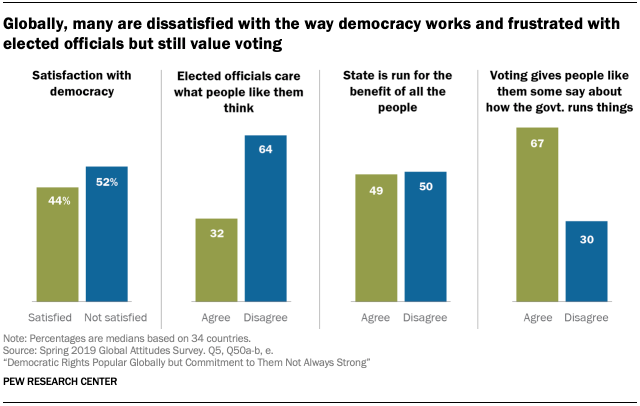
Pew Center
Even in an age of widespread disillusionment with democracy, a universally appealing alternative has yet to emerge, note analysts Adam E. Casey and Seva Gunitsky. The turn to personalism, for all the potential problems it poses, only reinforces this reality. The strongmen may be getting stronger, but the ideology used to prop up their rule is not, they write for Foreign Affairs:
Former NED board member Francis Fukuyama
A recent defense of Francis Fukuyama’s argument about the end of history noted that his central contention—that “there is no conceivable ideological rival to liberal democracy”—remains true today. China, Russia, the Islamic State (or ISIS), nationalism: none offer a “comprehensive set of political and economic ideas poised as a rival to liberal democracy with universal aspirations and global appeal.” Although the single-party state, abetted by power sharing and institutionalized succession, might have become that rival, this now looks increasingly unlikely.
Authoritarian leaders are constantly searching for scapegoats, working to rile up the fears of their populace, and trying to tighten their grips, according to Melinda Haring, the deputy director of the Atlantic Council’s Eurasia Center, and Doug Klain is a program assistant at the Atlantic Council’s Eurasia Center:
Now, the West needs to figure out how to stop a pandemic and fight authoritarianism at the same time. It can be done, add Haring – a former NED Penn Kemble Fellow – and Klain.
That is no reason to be sanguine about the rise of strongmen, Casey and Gunitsky add:
The move toward personalism may be self-defeating in the long run, but in the long run, as John Maynard Keynes said, we are all dead. Personalist regimes start more wars and make life miserable for their people. Nor are personalist regimes incapable of adaptation: both China and the Soviet Union underwent periods of intense personalization (under Mao and Stalin) but managed to recover and return to single-party rule. RTWT

